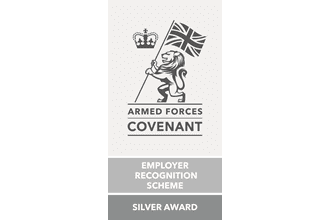What are T Levels?
T Levels are two-year level 3 qualifications that offers students a mixture of classroom-based learning and ‘on-the-job’ experience. They are designed in collaboration with employers, are the equivalent to three A Levels, and include 45 days industry placement in the students chosen sector.
What T Levels do we offer?
We currently offer T Levels in Business & Administration, Digital, Engineering, Health, Healthcare Science, Education & Childcare, Marketing, Legal and Media.
Why are industry placements important for T Level students?
Every student studying a T Level is required to complete an industry placement lasting at least 315 hours (45 days). This hands-on experience gives the students a valuable opportunity to apply their knowledge, learning, and skills in a real-world workplace setting.
What are the benefits of having a T Level student in your workplace?
- Welcome motivated young talent into your business, bringing fresh and innovative ideas
- Strengthen your recruitment pipeline with skilled and enthusiastic individuals
- Help tackle local skills shortages by equipping young people with the expertise your industry needs.
- Build valuable partnerships with local education and training providers.
- Provide your current staff with the opportunity to develop management and mentoring skills
- Able to train the student the specific skills your business requires
Do you need to pay the student?
No, there are no legal requirements to pay the T Level student while at your company on industry placement.
When do placements occur during the year?
You will need to collaborate with providers to determine the most suitable placement schedule, whether it involves a block of time or a series of day releases. Placement timing should align with key stages of the students’ T Level course. Typically, most placements happen in the second year, when students have a stronger understanding of the specialist content in their course.
Who needs to look after students during their placement?
An appropriate line manager or supervisor should be assigned to oversee the students, along with additional support staff if necessary. Ideally, this should be someone with experience in training others within the relevant specialist area.
Are there any restrictions on the working hours students can do during their placement?
Placement hours must comply with the Working Time Regulations, especially for block placements where students may work full-time hours. The following restrictions apply:
- Students can work a maximum of 8 hours per day and no more than 40 hours per week.
- Work is not allowed between 10 pm and 6 am, though employers may agree to adjust this to 11 pm and 7 am.
- A 12-hour rest period must be provided between working days.
- A 30-minute rest break is required for shifts longer than 4.5 hours.
- Students must have two days of rest per week.
How much industry knowledge and skills will students have?
T Levels provide a more in-depth learning than most technical qualifications, with extended teaching hours and a stronger focus on occupationally specific skills and knowledge defined by employers as essential for the workplace. Industry placements aim to help students apply and expand upon the skills and knowledge acquired in the classroom, preparing them to be “work ready.”
If you would like to learn more about T Levels, click here to access detailed information, resources, and guidance.









